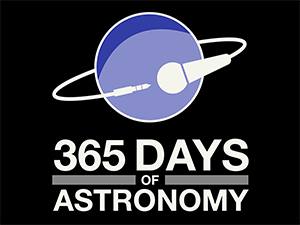If there’s one man who’s become the name and face of manned space exploration, it’s Neil Armstrong. The mission commander for Apollo 11, Armstrong went down in human history by being the first person to set foot on another planetary object, the Moon. Famously, he was heard across the world, “That’s one small step for [a] man, one giant leap for mankind.” The man whose footsteps brought our species on the moon has passed away today.
On August 5, 2012, Neil Armstrong turned 82 while the Mars Science Laboratory (Curiosity) made her touch down on the Martian surface. Two days later, Armstrong had heart surgery to bypass four blockages in his coronary arteries and initially showed to be recovering well afterwards. It caught many of us off-guard to find out today that Armstrong has succumbed to complications from this surgery and is no longer with us.
Armstrong’s astronaut career started in the U.S. Navy and then on to be a test pilot at Lewis Flight Propulsion Laboratory in Ohio and then on to Edwards Air Force Base. By the late 1950s, he was selected to be a part of the U.S. Air Force’s “Man In Space Soonest” program. In 1965, Armstrong was announced to be assigned to the crew of Gemini 8 as Command Pilot and then act as backup Command Pilot for Gemini 11. As the Apollo program moved forward, Armstrong served as backup Commander for Apollo 8 before becoming Commander of the legendary Apollo 11.
An outpouring of emotional responses has come flooding in from across the world. The voice that told us that The Eagle has landed will be heard no more except from recordings. However, Neil Armstrong’s legacy will continue to manifest itself for many years to come. Armstrong taught aerospace engineering at the University of Cincinnati after resigning from NASA, actively imparting his knowledge and experience to a new generation of engineers. He was also on two NASA accident investigation teams, helping produce chronologies of the flight of Apollo 13 and again as vice-chairman of the Rogers Commission to investigate the Challenger disaster. Countless children will attend Neil Armstrong middle or high school for decades to come.
Neil Armstrong showed us that we can do remarkable things if we have the will to do so. He became the face of American space flight while also underscoring the fact that exploration is a human endeavor.
I think we’re going to the moon because it’s in the nature of the human being to face challenges. It’s by the nature of his deep inner soul … we’re required to do these things just as salmon swim upstream. — Neil Armstrong
As we’ve now found ourselves in a new age of space exploration, with multiple governments from across the world wading out into the cosmos as well as private companies defining their niche in the industry of exploration, it’s hard to imagine a world where Neil Armstrong never existed. Though thousands of people were necessary for the success of putting a man on the moon, it was Armstrong’s boots which first touched the Lunar soil. The next time you look up at the moon, consider all of the amazing things which have been accomplished thanks to Neil being willing to explore a world that is not our own. We have much to be thankful for and much still to do. Pamela wrote a brief blog article on her site, giving her initial reaction to hearing the news, as well as an admonition to all of us as we continue our journey into the Universe.
“Please raise a glass to Neil Armstrong and thank him for opening the sky for all the tomorrows’ explorers.”
–Pamela Gay “Thank You Neil Armstrong“
Please share with us your reactions to the news of Armstrong’s passing. How has his career and achievements affected your life? What will you be doing in remembrance of Armstrong this weekend?





